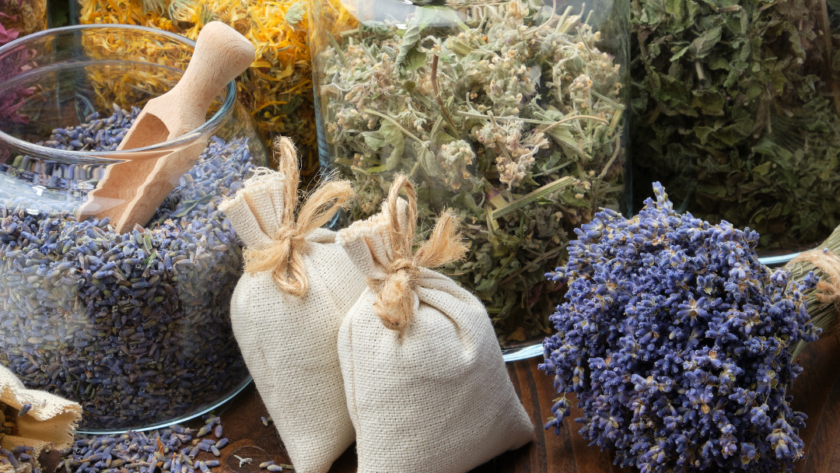Many societies around the world relied on plants and herbs to cure and manage a variety of ailments and infections before the introduction of modern medicine. They were also employed as a prophylactic measure in the form of teas or as a food element.
In today’s society, medicinal plants play an important role in traditional medicine. Indeed, chemicals obtained and extracted from plants have contributed to developing contemporary medications.
The World Health Organization (WHO) classed 252 medications as basic and necessary at the start of the twenty-first century, 11% of which were derived from plants. Aspirin, morphine, several cancer medications, and pharmaceuticals used to treat liver problems (silymarin) are all derived from plants!
In this article, we will explore unlocking the potential of natural wellness. Read on.
1. Kratom
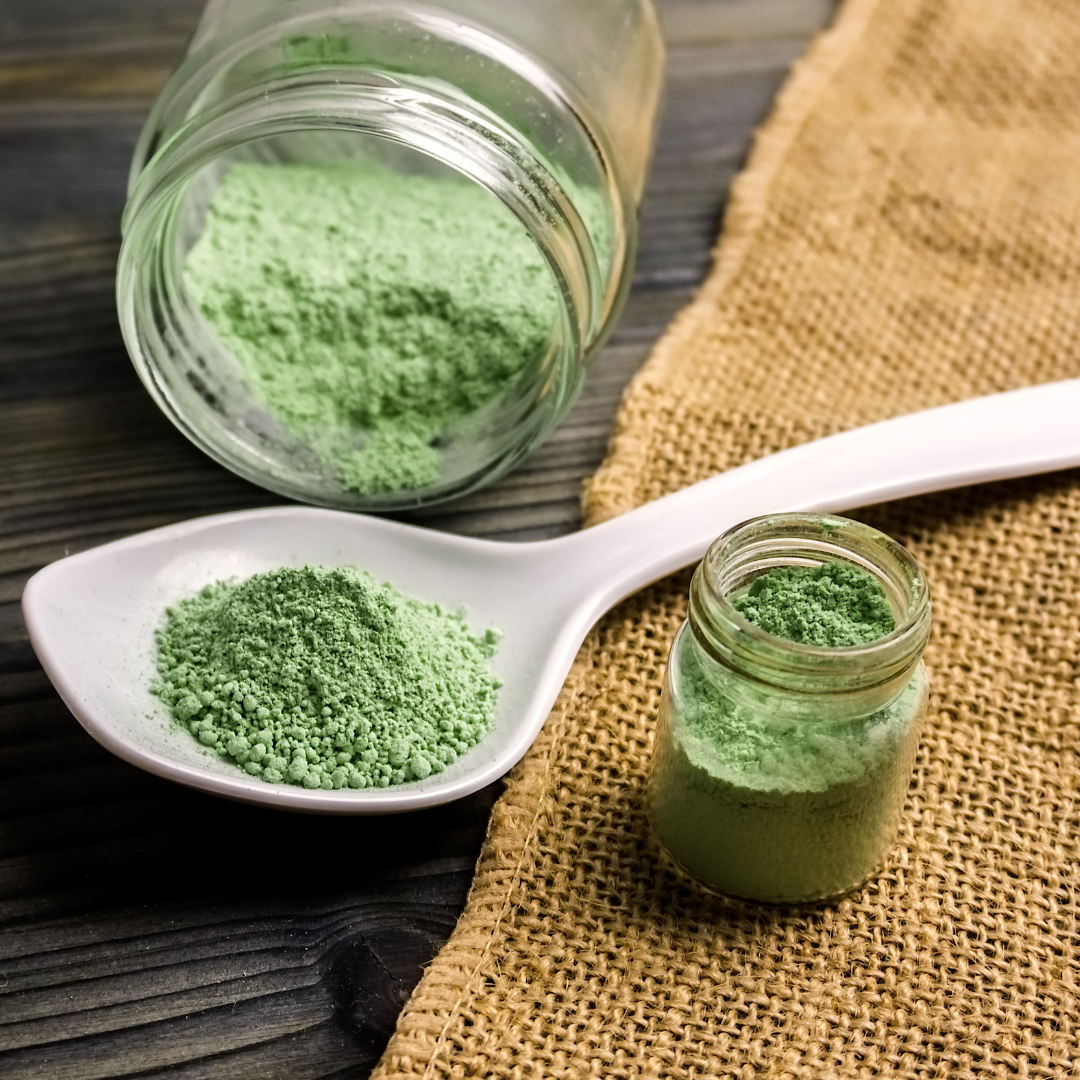
Kratom is a coffee-family tropical evergreen tree. Malaysia, Thailand, and other South Asian countries are their natural habitats.
The leaves, or preparations thereof, have been employed as a stimulant and sedative. It has also been used to treat chronic pain and digestive problems and to help with opiate withdrawal. Significantly, Kratom can be found online from reliable vendors, and while shopping in Canada, bckratom.com offers Canada Kratom express coupons that give you amazing discounts.
Advantages of eating Kratom in its various forms.
- Pain Relief: The most prevalent reason for ingesting Kratom leaves is to alleviate bodily pain. People who suffer from chronic pain understand how difficult it may be to continue their regular lives while experiencing significant physical suffering. OTC pain relievers provide some relief but, in most circumstances, have several unpleasant side effects.
- Euphoria: Some people like to take Kratom for stress relief and to add positivity to their day. The three fundamental veins – Red, Green, and White – all have euphoric versions. White Thai, Maeng Da, White Borneo, and Green Malay are the best. People who take these strains report noticeable mood enhancement and cheerful thoughts for several hours.
- Mental Stimulation: Among the many Kratom benefits, improving cognitive abilities is becoming increasingly popular as many people search for inventive ways to become more effective at work. White strains of Kratom are well recognized for increasing alertness and
- Antidepressant and Anxiolytic: Even though Kratom is not an opioid, its effects are very comparable. Different alkaloids in Kratom have different medicinal effects, such as relaxing your nerves and fostering a more optimistic state of mind. Furthermore, when consumed in higher amounts, Kratom leaves, particularly Red Veins, have profound sedative effects. These benefits work together to alleviate symptoms of anxiety and sadness, making Kratom the finest all-natural way to stay relaxed and at ease even in high-stress situations.
- Opioid Withdrawal Management: If you’re suffering from opiate withdrawal symptoms, Kratom is the greatest all-natural treatment. It triggers the same mood-enhancing and pain-relieving sensations in the brain by binding to opioid receptors.
Kratom Dosage
There is no set dose because the FDA has not approved Kratom to treat any condition. Early research indicates that doses of less than 5 grams of raw plant material may operate as a stimulant like caffeine does. Higher doses of between 5 and 15 grams may have the opposite effect and aid in pain relief.
2. Gingko
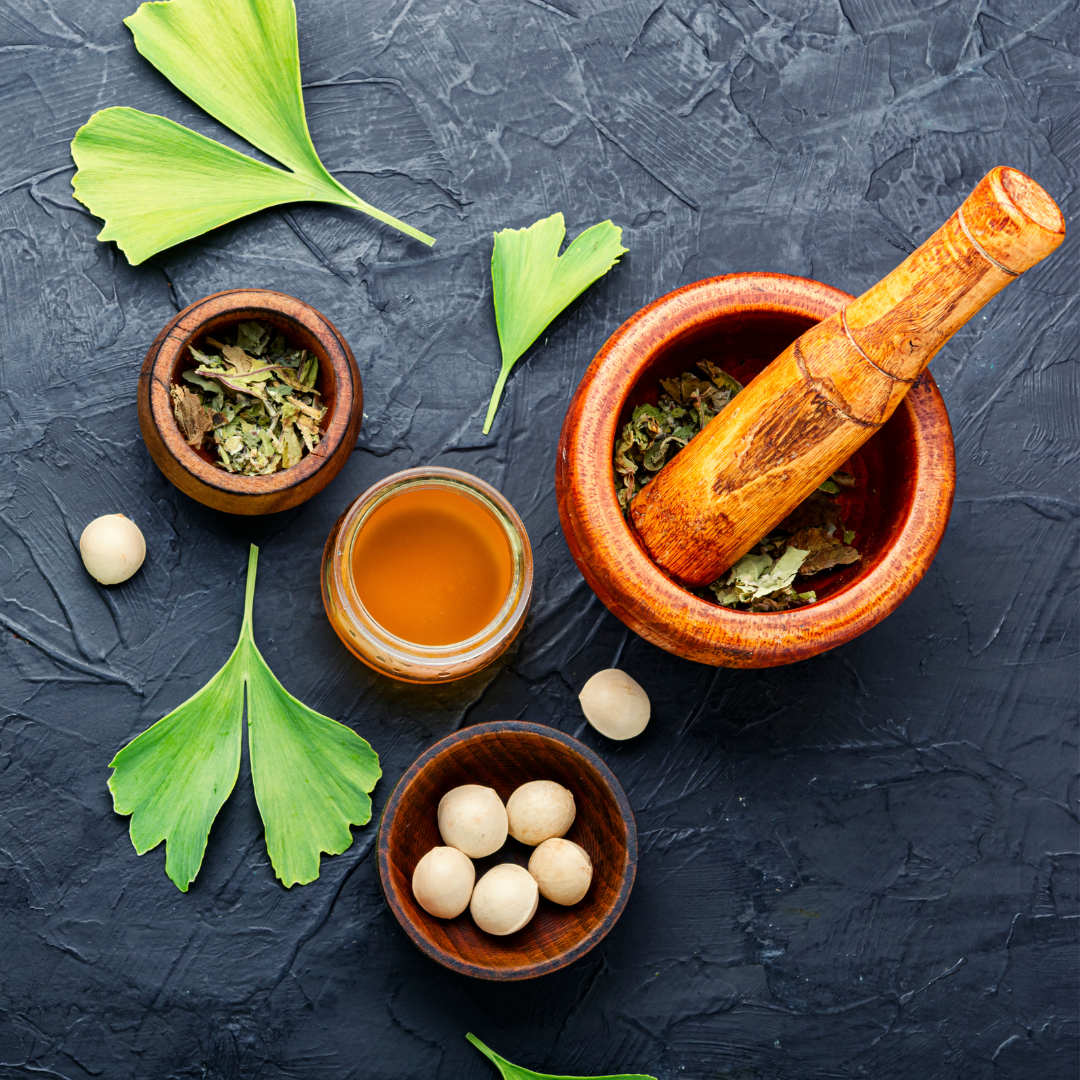
Ginkgo is among the oldest tree species, one of the earliest homeopathic plants, and an essential herb in Chinese medicine. The leaves make capsules, pills, and extracts and can be drunk as tea when dried.
Research shows ginkgo can help patients with mild to moderate dementia and delay cognitive deterioration in demAlzheimer’s disease and dementia.
Notably, recent research is looking into a component that may aid with diabetes, and further studies are being conducted, including an animal study that suggests it may improve bone mending.
3. Turmeric
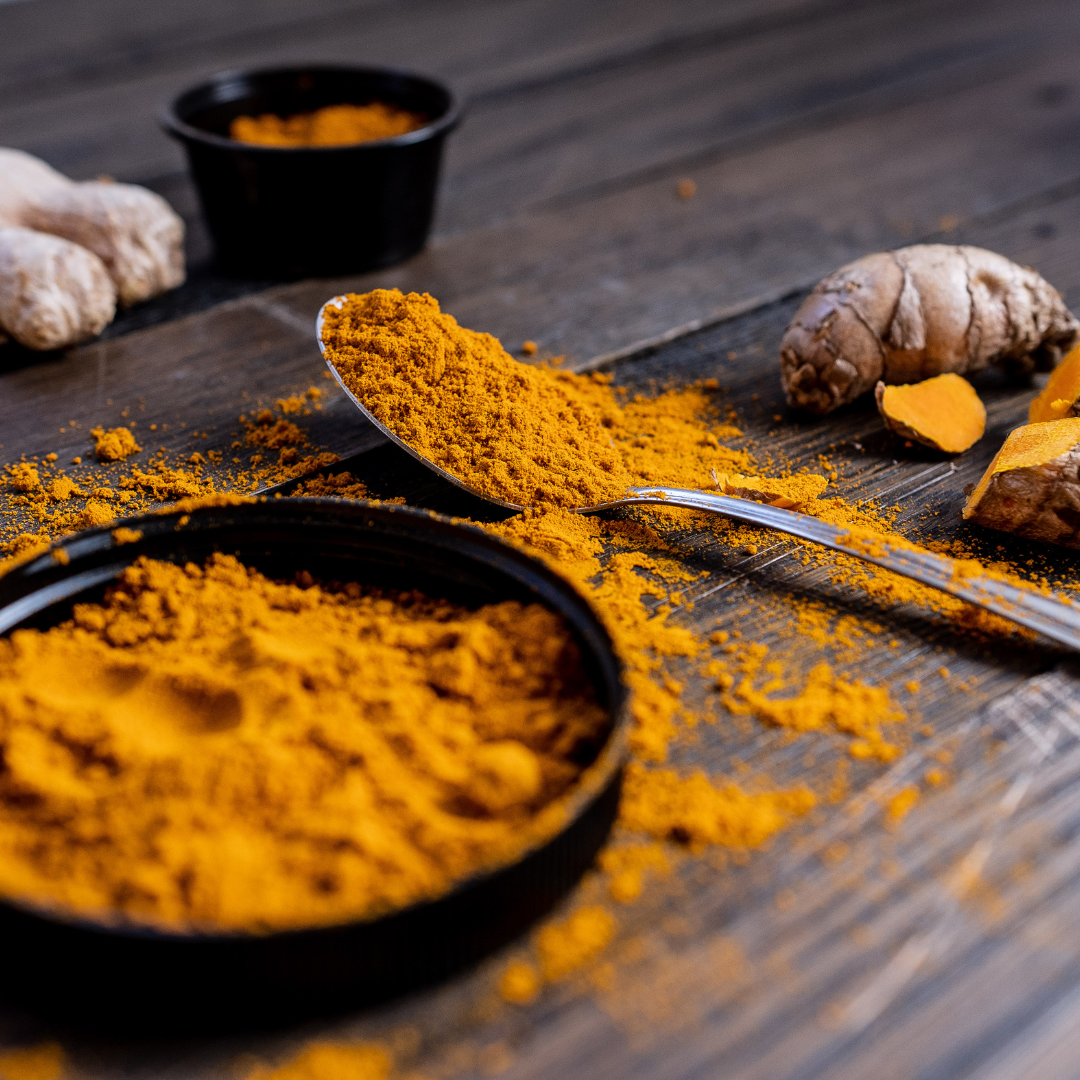
With its striking orange tint, a bottle of turmeric is impossible to miss on a spice shelf. Turmeric originated in India and is thought to have anticancer qualities and can prevent DNA alterations.
Turmeric has been applied topically to treat arthritis pain and is available as a supplement for anti-inflammatory purposes. It’s a wonderful, antioxidant-rich addition to many recipes because it’s utilized as a cooking ingredient worldwide.
Recent research suggests that turmeric may effectively treat dermatological problems, including joint inflammation.
4. Echinacea
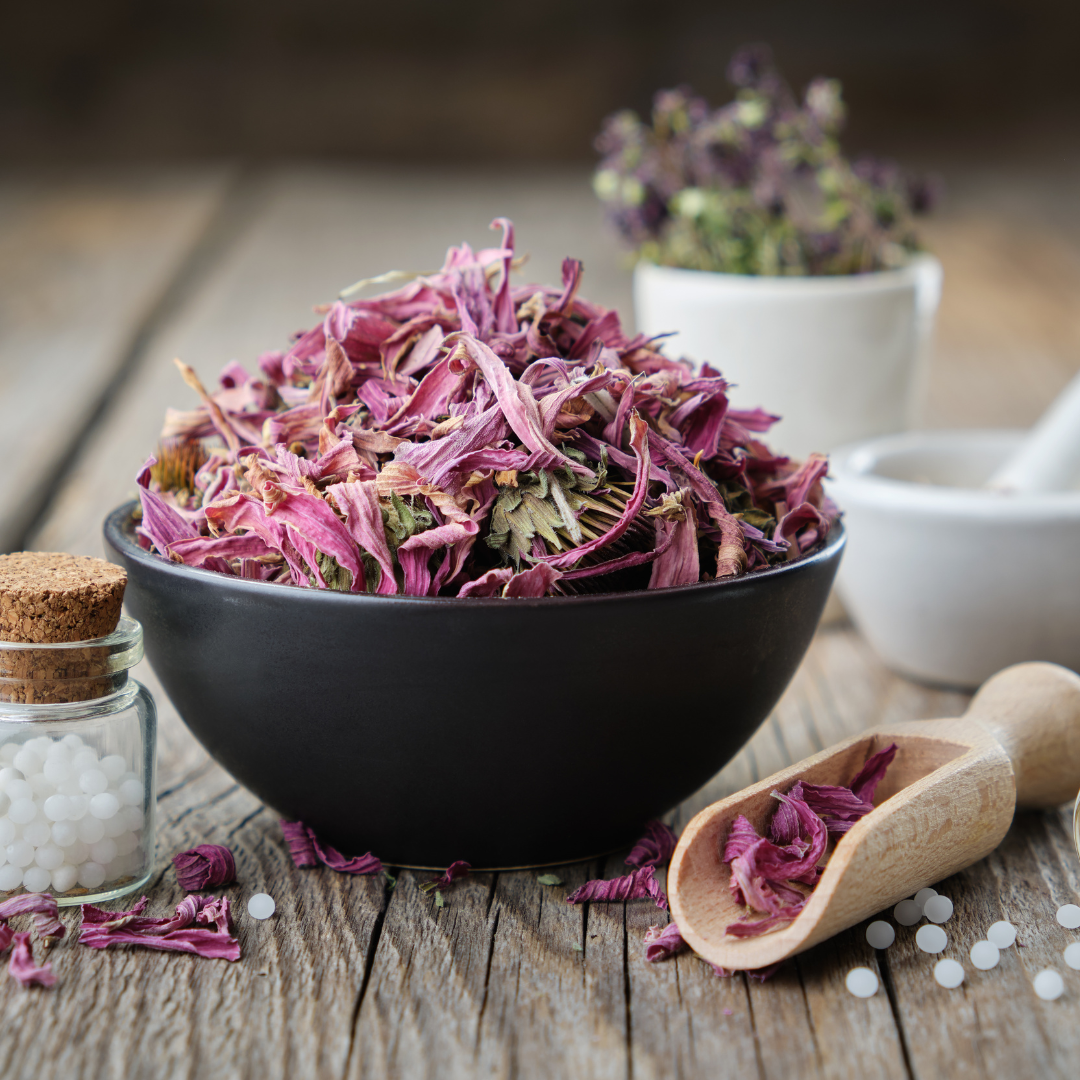
More than only the lovely purple coneflowers you see in gardens make up echinacea. These blossoms have been used as teas, juices, and extracts for medicinal purposes for ages. They are currently offered as supplements or powders.
The most well-known application of echinacea is to alleviate common cold symptoms. Still, additional research is needed to confirm this benefit and understand how echinacea improves immunity when a virus is present.
Echinacea is generally harmless, except for a few potential adverse effects. Even if additional research is needed, you can always utilize it if you want your cold symptoms to go away faster.
Bottomline
While most herbal plants have little to no toxicity unless used in high quantities, care must be taken.
The quality of the source determines the efficacy of these supplements. If the supplement is not FDA-approved, it may contain additives or heavy metals that cause more harm than good.
Furthermore, if you have a severe, long-term sickness, see a doctor immediately because herbal supplements often take much longer to work.
